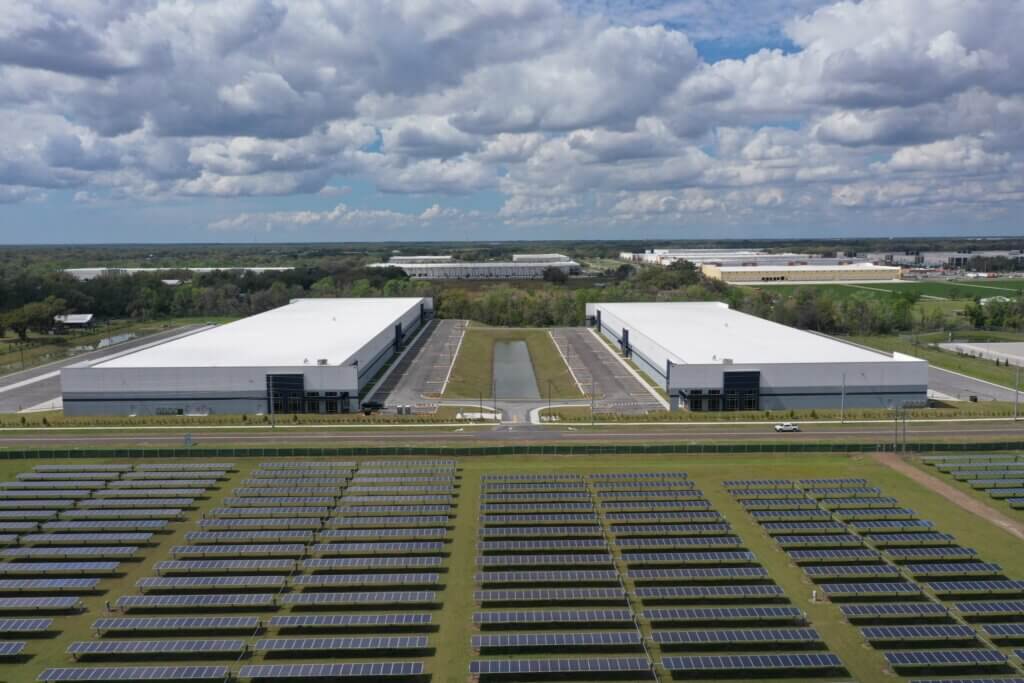Opportunity Zones Open New Door for Investment in Polk
A new federal program that’s received little attention is unfolding as an “opportunity” for investors to develop within 19 zones in Polk County, Florida.
The new community development program — part of the Tax Cut and Jobs Act of 2017 — is called Opportunity Zones. The Treasury Department has certified 8,700 such zones — 12 percent of the Census tracts in the United States, including 427 in Florida — that include low-income communities. The goal of the new program is to encourage long-term investment within the zones by allowing investors to avoid some taxes when they develop within a zone.
Winter Haven took the lead locally in urging Gov. Rick Scott to “nominate” six locations in the city or bordering it. Other cities then got involved, and Scott nominated 19 zones in Polk County, all of which were approved, Lyon said. Other than Winter Haven, whose zones include its airport, Industrial Park and Intermodal Logistics Center, Lakeland, Lake Wales, Frostproof, Bartow and Fort Meade all have areas designated as Opportunity Zones.
Click here for a map of the Polk County, Florida Opportunity Zones.
“We’re extremely appreciative of Gov. Scott’s acknowledgement that this is one of the fastest-growing communities in one of the fastest-growing MSAs (metropolitan statistical area, which in this case includes all of Polk County) in the country — in and around the Winter Haven city limits,” said Bruce Lyon, president of the Winter Haven Economic Development Council.
The Census tracts that received the designation have at least 20 percent of their households below the the poverty line, based on household size, or the median family income is below 80 percent of the state level.
Lyon said investors are asking questions, trying to learn more about Opportunity Funds, the mechanism to invest, and Opportunity Zones. “They are trying to determine how it helps them based on the capital they have to deploy,” he said.
The Treasury Department is still working on guidelines for the program, Lyon said.
Gary Ralston, a Certified Commercial Investment Member at Coldwell Banker Commercial Saunders Ralston Dantzler Realty in Lakeland, said the zones are “where new investments, under certain conditions, may be eligible for preferential tax treatment.” His company has been “analyzing land use, density and ownership.”
Those involved with community development nationwide estimate the program will prompt $30 billion in investments, according to nextcity.org.
Lyon expects investors to “target their investments into Opportunity Zones to make their projects valuable,” he said. Zones will “encourage people to invest.”
The benefits to the community?
The cost of capital to developers will be somewhat lower, and risk will be reduced, Lyon said. “When they can defer taxes, it changes the way they do business.”
Ralston explained the tax benefits of investing in Opportunity Zones.
“If the gain from the sale of real estate, stocks, bonds or other qualified investments is invested in a Qualified Opportunity Zone Fund (QOZF) the tax on such gain is deferred until the earlier of the date on which the investment in a QOZF is sold or exchanged, or December 31, 2026,” he said. “If the QOZF investment is held for longer than five years, there is a 10 percent exclusion of the deferred gain. If held for more than seven years, the 10 percent becomes 15 percent.
“If the investor holds the investment in the Opportunity Fund for at least 10 years, the investor is eligible for an increase in basis of the QOZF investment equal to its fair market value on the date that the QOZF investment is sold or exchanged,” Ralston explained.
Lyon said the fact that Opportunity Zones will include residential development is important — and new — especially in Winter Haven.
“Previously, most were based solely on commercial development. This legislation adds housing, a different level of community growth and opportunity,” Lyon said.
“In Winter Haven, we are desperate for new multifamily housing,” Lyon said. “This could have an immediate impact.”
In addition, New Market Tax credits are still available, and Lyon said he thinks those credits can be layered and included with Opportunity Zones.
Ralston said he thinks Opportunity Zones will attract investors from outside real estate because “real estate already qualifies for preferred treatment of gain on sale.”
“And we anticipate that stock brokers and institutional investment sponsors will raise billions via Opportunity Zone Funds. Therefore, there should be an abundance of investment capital,” he said. “But it is good to keep in mind that institutional investment sponsors typically seek larger-scale investment opportunities and recognized sponsors (developers).”
Ralston said the focus of investments likely will be new development or extensive redevelopment. Much of the business districts in Lakeland and Winter Haven are within Opportunity Zones, and Ralton said he thinks they are prime spots for either. The Opportunity Zone designation will last 10 years.
“There are other key areas that may have logistic applications which could be financially feasible,” Ralston said. “And we are examining opportunities that may work in less-dense geographies, such as solar farms and even ranching.”
Ralston and Lyon both emphasize that the rules surrounding Opportunity Zone investment are complex and still being instituted. For those reasons, both suggested seeking input and guidance from lawyers, tax professionals and qualified real estate agents.
Lyon said no one can predict the long-term impact Opportunity Funds and Opportunity Zones will have. But interest already is developing.
“Some of the nearby Census tracts that are Opportunity Zones are attracting more attention,” he said. “We are taking more calls, talkings to more developers.”



